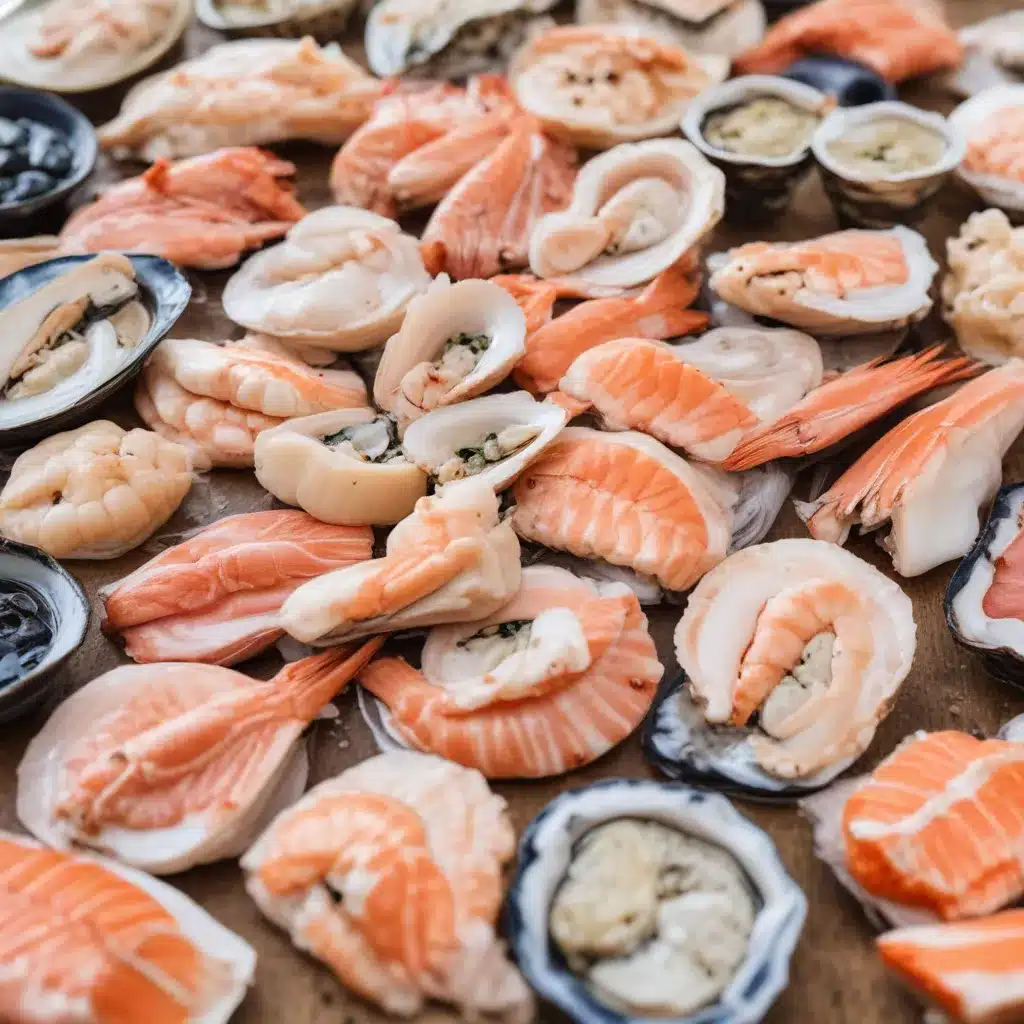
As a seafood dining expert at Fish Tales Cafe, I’m excited to dive into the world of sustainable seafood and help you navigate the ever-evolving landscape of eco-certifications. In an age where oceans face unprecedented challenges, making informed choices about the seafood we consume has never been more important.
Seafood Sustainability Concepts
At the heart of sustainable seafood practices lies a deep commitment to safeguarding our marine ecosystems. Environmental impact, overfishing, and responsible aquaculture are all crucial considerations when it comes to securing the future of our oceanic resources.
The devastating effects of overfishing have become all too apparent, with certain species facing the risk of depletion. Sustainable seafood aims to address this by ensuring that fishing and aquaculture methods align with the natural life cycles of marine life, allowing populations to replenish and thrive. This not only preserves the diversity of our oceans but also supports the livelihoods of coastal communities that rely on healthy fisheries.
Certification Programs
In the pursuit of sustainable seafood, several certification programs have emerged as trusted guides for both producers and consumers. Two of the most recognized labels are the Marine Stewardship Council (MSC) for wild-caught seafood and the Aquaculture Stewardship Council (ASC) for responsibly farmed options.
The MSC certification upholds rigorous standards for wild-caught fish, focusing on the long-term management of fish stocks, the minimization of environmental impact, and the traceability of the seafood supply chain. The ASC, on the other hand, ensures that farmed seafood is produced with a keen eye on ecological balance, ethical treatment of workers, and the responsible use of resources.
Another notable certification is the Fair Trade USA label, which addresses the social and economic aspects of sustainability, promoting fair wages and supporting coastal communities.
Certification Labels and Criteria
These certification programs translate their sustainability principles into clear, easy-to-understand product labels. When you see the MSC’s blue checkmark or the ASC’s green logo, you can be confident that the seafood has been sourced and produced in an environmentally and socially responsible manner.
Beyond the labels, these certification schemes also emphasize traceability and transparency, allowing consumers to trace the origins of their seafood and understand the specific sustainability criteria that have been met.
Consumer Awareness and Choices
As seafood consumers, we wield significant power in shaping the future of our oceans. By making informed choices and prioritizing sustainable options, we can contribute to the broader movement towards ocean conservation.
Informed decision-making is key. By familiarizing ourselves with the various certification labels and understanding their underlying principles, we can navigate the seafood aisle with confidence, choosing eco-friendly options that align with our values.
Responsible Seafood Sourcing
Sustainability in seafood extends beyond the final product on the shelf. It’s a holistic approach that encompasses the entire supply chain, from the fishermen and farmers to the distributors and retailers.
Transparency in the supply chain is crucial, as it allows consumers to trace the origins of their seafood and validate the sustainability claims. Responsible suppliers and manufacturers work diligently to maintain traceability mechanisms, ensuring that the journey from ocean to plate is transparent and accountable.
Additionally, the adoption of sustainable fishing methods and aquaculture practices plays a vital role in minimizing the environmental impact of seafood production. Techniques like selective gear and bycatch reduction help preserve the delicate balance of marine ecosystems, while advancements in water management and responsible feed sourcing in aquaculture operations contribute to a more sustainable industry.
Promoting Sustainable Seafood
The sustainable seafood movement is a collaborative effort, involving industry leaders, policymakers, and engaged consumers. Industry collaborations and certification partnerships help drive the development and adoption of robust sustainability standards, ensuring that the seafood we consume aligns with our environmental values.
Equally important are the consumer education initiatives spearheaded by organizations and businesses. Awareness campaigns, sustainable seafood guides, and transparent sourcing policies empower us to make informed choices and become active participants in the quest for a healthier ocean.
Challenges and Limitations
While the sustainable seafood movement has gained significant momentum, it is not without its challenges. One key concern is the issue of greenwashing, where some producers or retailers may make misleading claims or use eco-labels without truly adhering to rigorous sustainability practices. Robust enforcement and reliable third-party certification are essential to combat this and ensure the integrity of sustainable seafood claims.
Additionally, the accessibility and affordability of sustainable seafood options remain hurdles, as these products may not always be readily available or competitively priced in mainstream markets. Addressing these barriers is crucial to making sustainable seafood a viable choice for a wider consumer base.
Future of Sustainable Seafood
As we look ahead, the future of sustainable seafood holds immense promise, fueled by technological advancements and evolving policy landscapes. Blockchain technology, for instance, is revolutionizing seafood traceability, allowing for unprecedented transparency and accountability throughout the supply chain.
Innovative aquaculture systems, such as recirculating aquaculture and integrated multi-trophic aquaculture, are also paving the way for more environmentally responsible seafood production. These technologies, combined with strengthened eco-labeling standards and fishery management reforms, will undoubtedly shape the sustainable seafood landscape of tomorrow.
By staying informed, making eco-conscious choices, and supporting industry-wide initiatives, we can all play a role in ensuring that the ocean’s bounty remains plentiful and accessible for generations to come. After all, the future of our seafood, and the health of our oceans, rests in our hands.
So, the next time you visit Fish Tales Cafe or peruse the seafood counter, remember to keep an eye out for those trusty sustainability certifications. They are your gateway to a delicious and guilt-free seafood experience, one that nourishes both your body and the planet. Bon appétit, and happy sustainable seafood adventures!

